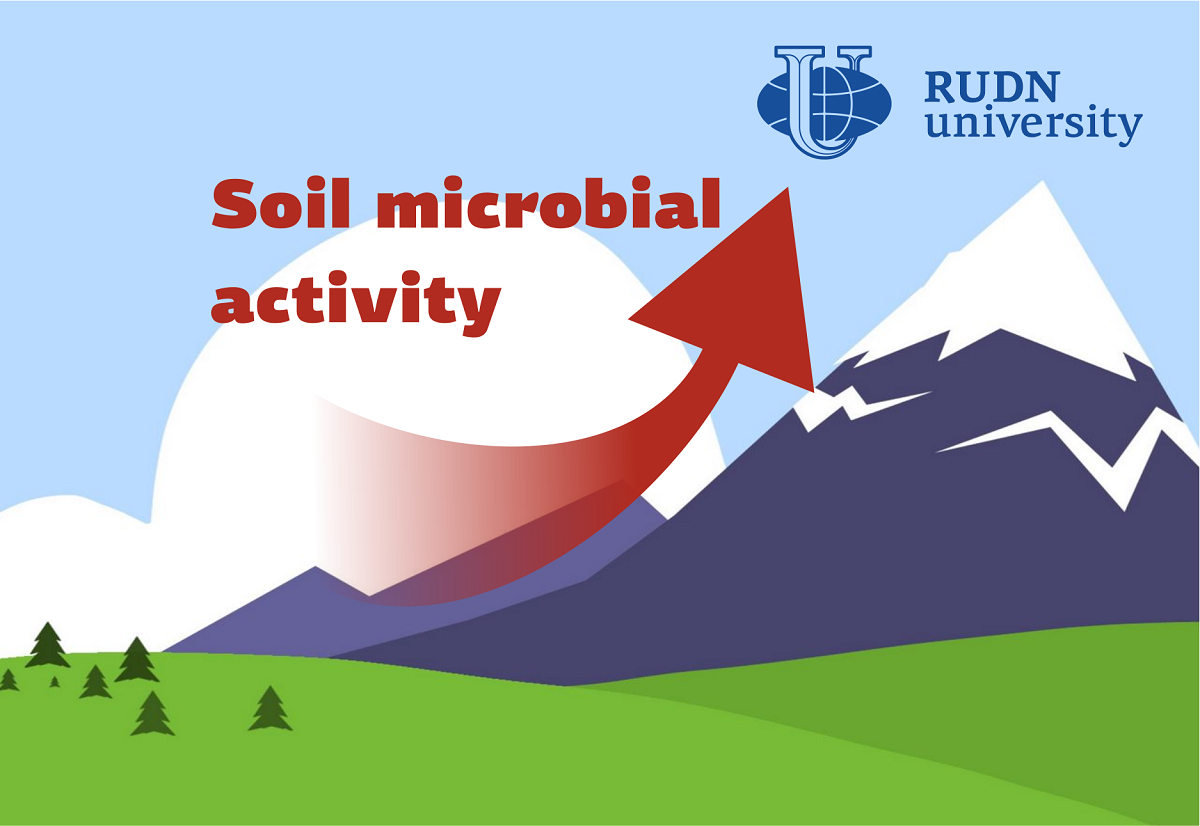RUDN University Biologist Has Determined What Determines the Activity of Soil Microbes and How Climate Change Affects It

Global warming is changing conditions in all regions of the Earth. Equally important deviationsfollow changes intemperature and precipitation. For example, changes in the activity of microbes in the soil. Soil microorganisms are an important component of the carbon cycle. If their activity changes, this entails a restructuring of the entire system. There is no unambiguous understanding of how global warming will affect the microbial community ofthe soil. There are hypotheses and theories that are tested in the laboratory. A biologist RUDN University studied this effect on the example of different ecosystems with a change in height.
“The altitude gradient in the mountains is an ’open laboratory’forstudying environmental hypotheses and analyzing the expected effects of global warming. If we consider the properties of the soil in areas ranging from forest to alpine meadows, the carbon contentchangesthe most. This is due to a decrease in air temperature and an increase in precipitation. Because of this, the microbiological decomposition of soil organic matter slows down, which leads to carbon accumulation. Global warming changes the distribution of microbial activity of the soil depending on the height. Therefore,to predict changes caused by global warming, it is necessary to quantify the activity of microbial communities at different heightsof the gradient,”- Candidate of Biological Sciences Kristina Ivashchenko, Senior Lecturer at the Department of Landscape Design and Sustainable Ecosystems of RUDN University.
Biologists have studied different ecosystems on the slope of Mount Tkachukha in the North-West of the Caucasus Mountains. The height difference in the selected area is 1.2 km. On the slope, five zones can be clearly distinguished — mixed forest, spruce forest, deciduous forest, subalpine meadow and alpine meadow. The spread of the average annual temperature on the site is from 3.2 to 5.6 ° C. In each zone, RUDN biologists identified 12 sites, took soil samples, and studied the vegetation cover.
Biologists have found that the distribution of soil enzymes that secrete microorganisms cannot be explained by changes in height and nutrient content alone. For example, the activity of leucinaminopeptidase depends on the type of vegetation and the abundance of grass, β-glucosidase depends on the ratio of carbon and nitrogen, and phosphatase depends on temperature. In the results, biologists called the vegetation cover (species diversity, composition, density) the main driving factor in changing microbial activity in different ecosystems.
“Vegetation cover is sensitive to global warming. In the future, vegetation zones will inevitably change.The diversity of ecosystems in different climatic zones will create many scenariosfor microbialactivity in soils under conditions of global warming. Consequently, the feedback of ecosystems to global warming will become more uncertain. Theresults give an understandingofthe patterns and driving forces of soil microbial activity in the entire spectrum of ecosystems in the temperate climatic zone” — said Candidate of Biological Sciences Kristina Ivashchenko, Senior Lecturer at the Department of Landscape Design and Sustainable Ecosystems of RUDN University.
The results are published in the journal Applied Soil Ecology. https://www.sciencedirect.com/science/article/abs/pii/S0929139321003206?via%3Dihub
The project to develop a cellular model of the placenta became the winner in the Scientific Materials category of the Young Scientists 3.0 competition, organized with the support of the Presidential Grants Foundation and T-Bank.
Ten scientific journals published by RUDN University have been included in the highest level of the state list of scientific publications, the White List.
Forests are not only the lungs of the planet, but also home to millions of species. However, it has remained unclear how underground interactions between trees and fungi affect forest species richness in different climatic conditions. Previous studies have yielded conflicting results: in some regions, the dominance of certain fungi reduced tree diversity, while in others it increased it.
The project to develop a cellular model of the placenta became the winner in the Scientific Materials category of the Young Scientists 3.0 competition, organized with the support of the Presidential Grants Foundation and T-Bank.
Ten scientific journals published by RUDN University have been included in the highest level of the state list of scientific publications, the White List.
Forests are not only the lungs of the planet, but also home to millions of species. However, it has remained unclear how underground interactions between trees and fungi affect forest species richness in different climatic conditions. Previous studies have yielded conflicting results: in some regions, the dominance of certain fungi reduced tree diversity, while in others it increased it.